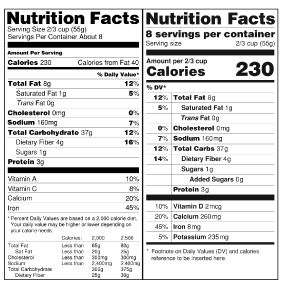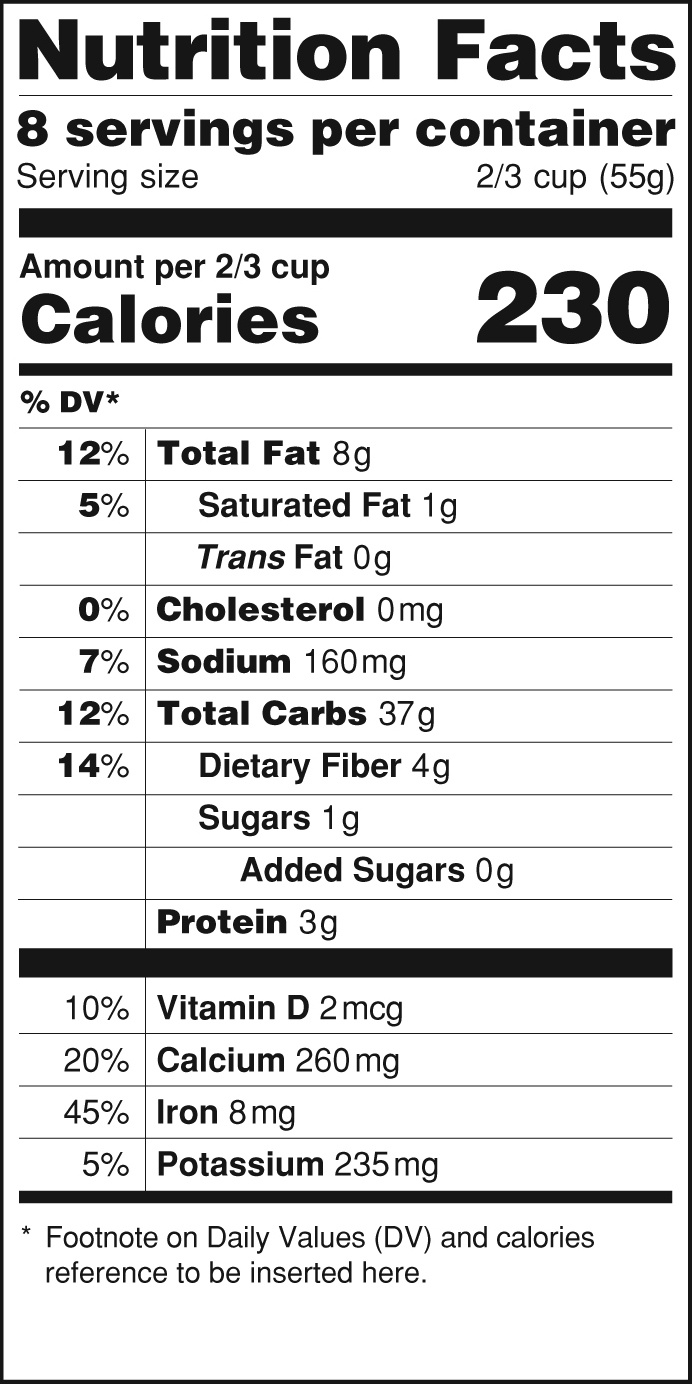The FDA recently announced several changes to the nutrition information on food products, the most significant of which will require manufacturers to disclose the amount of sugar added during production. According to the FDA, “This isn’t about telling people what they should eat. It’s about making sure that they know what they’re eating.”
The change, which applies to all 800,000+ products labeled, is already inspiring backlash from food manufacturers, who have just over two years to comply.
Sweets Bad for the Heart?
While there may be some debate about whether people process naturally-occurring and added sugars differently, there is no debate about Americans’ overconsumption of sugar in all its form. Yet with the new “sugars added” column, the FDA differentiates between sugars that occur naturally, like in an apple, and sugars that are added in production, like in an apple pie.
When initially proposed, this distinction inspired concern from a host of industry groups including: The American Bakers Association, American Beverage Association, American Frozen Foods Institute, Corn Refiners Association, International Dairy Foods Association, and National Confectioners Association. Together, they petitioned the FDA to ask for more time and research before instituting the changes.
Now that the new labels are set to become law, companies with products relying on added sugars have reason to worry. Approximately 16% of the average American’s daily calories come from sugar added during food production, amounting to roughly 126 grams of sugar per day. With processed sugars becoming a bogeyman among nutritionists and even the First Lady, such statistics are alarming to regulators and consumers, bringing to mind a recently-eradicated bogeyman, the trans fat done in by FDA labels.
The Trans Fat Lesson
In 2006, the FDA added a distinct “trans fat” category to its label as scientists better understood the particularly pernicious man-made fat. In the ten years since the change, 80% of trans fats have been removed from food production, as companies have reformulated their products to avoid being associated with an unpopular and unhealthy ingredient. Some fear the same may be happening with sugar.

Don’t Sugar Coat It!
Now something formerly perceived as healthy, like yogurt, must disclose its added sugar content and thus stand to lose its healthy veneer. According to the New York Times, the FDA expects companies to go back to the drawing board with many products to avoid being seen as unhealthy.
This will, of course, be an expensive process. Just the act of relabeling products will cost the industry an estimated $2 billion—a figure that does not account for reformulation. Noted one George Washington University food scientist, “Reformulating a product is not easy. There are all sorts of properties that food scientists have to pay attention to, and one of those physical properties when it comes to sugar and salt is that they tend to hold things together.”
Making Some Bitter
The prospect of manufacturers removing sugar from their products obviously has the sugar industry, and its lobbying arm The Sugar Association, worked up. On the day the changes were announced, they came out swinging, challenging the FDA's methodology: “The science used by the FDA to propose ‘added sugars’ labeling and a DRV [Daily Reference Value] would not withstand the scrutiny of a quality, impartial evaluation of the full body of scientific evidence.” Sugar, they contend, actually helps people eat healthier by making whole grains and vegetables palatable, and there is no scientifically proven metabolic distinction between natural and added sugars.
Yet others are reluctant to oppose the change and risk appearing anti-health. They are, at least publicly, falling in line. Brad Figel, VP of Public Affairs at candy producer Mars praised the changes: “We really applaud this. We think the science is established and that’s why we’re supporting it.” Even the Grocery Manufacturers Association is on board, asking for more education to support the new labels, not their eradication.


